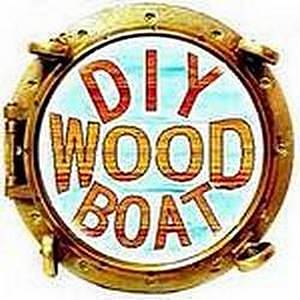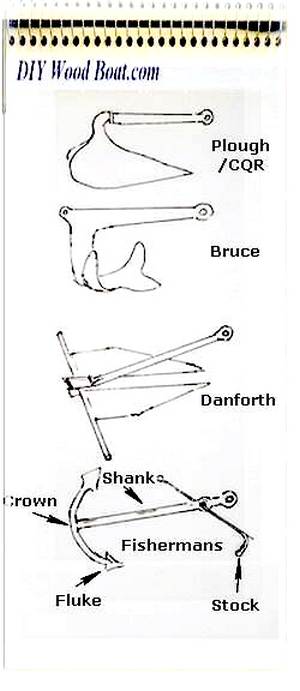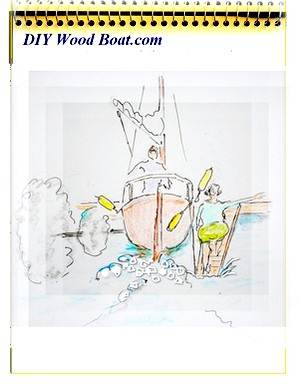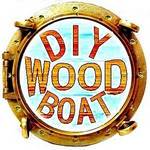- Home
- Begin Boating
- Life Jackets
- Trailers
Boat Trailer Launching and Recovery
Launching and recovering using a boat trailer can be a stressful experience.
However, with a little bit of practice and careful preparation anyone can get it right.
Preparation can be as simple as going through a check list to make sure
nothing
is left undone.
But, unless you are a truck driver, reversing a trailer will need a bit of practice before venturing on to the ramp.
Check out the Slipway.
One of the joys of having a trailer-boat is being able to explore new cruising areas.
However it is worth doing a little research before setting off.
- Make sure that there is a suitable slipway at your destination.
- Will it be suitable for your boat, your car and your boat trailer? Some slipways are just too slippery and steep to risk taking a car onto.
- And check the tides, make sure that you know when you can launch and recover. There are many slipways which can only be used at certain states of tide.
- Is it a free slip or will there be a charge for using it and if so who and where do you have to pay?
- And is there adequate, secure parking for your car and boat trailer while you are out on the water?
It will definitely spoil you trip if you return to find your trailer has disappeared.
Having arrived, it's a good idea to have a good look around before driving on to the ramp.
This will give the trailer's wheel bearings time to cool down before plunging them into that cold water.
If you have driven any distance those bearings will have become quite hot, if they are submerged straight away the rapid cooling will suck in water regardless of how well they have been greased.
Use this cooling off time to pan your launch and check out the slipway.
- Check if it's slippery or muddy.
- Are there any potholes, rocks or obstructions under the water?
- Is there a suitable place for the crew/passengers to board once the boat is in the water.
Preparing the Boat.
Try not to spoil your day by forgetting something simple.
It's easy done, yea I've been there. I'm guilty of having launched a boat without securing the bow line, then watching from the shore as she drifted away. Fortunately that day there was an onshore breeze and just as important, no one watching.
One of the advantages of trailer boating is that much of the preparation can be done before you even leave home.
However the most important preparation come when you have reached the launch site but before you venture on to the ramp.

- First remove any covers, safety straps and the trailer board.
- You can then get all your gear into the boat ready to go to sea.
- Check that you've got enough life-jackets on board and the radio and GPS are on board and working.
- If using an outboard take it off the tilt, and put the keys in the ignition so you know where they are.
- Check the fuel and oil if necessary and prime the fuel pump.
- Oh, and don't forget that bow line so she doesn't float away without you.
Reversing the Trailer.
Reversing a boat trailer is something
which does not come naturally to
most folk.
Most slipways are relatively
narrow and often have drop
offs at the sides.
So, if you have never done it before try it out on the level first, well away from spectators and practice until you feel confident.
Some slips get very busy especially at weekends.
Don't worry about the spectators, take your time and don't rush it, that's when mistakes are most likely to be made.
It there is a queue of boaters behind its better to let them through, and watch how they do it, you can pick up some good tips that way.
And don't be afraid to admit that it's your first time, most boaters are great people and you'll find they will pitch in to help and advise you.If you have any worries about the ramp being slippery you can use a rope between the car and boat trailer, so the boat and trailer go down the ramp while the car stays on the level.

You'll need some helpers for this, someone driving, someone steering the trailer and someone to relay instructions.
And be careful when unhitching the boat trailer, chock the wheels so she won't run away whilst you get the rope on.
Some slips may even have a winch that can be used for launching and retrieval.
If you do intend using the winch check that the cable is in good condition and that the brake works.
I lost 75% of the skin from the palms of my hands once.
I was using a winch to launch my little trailer sailer when the brake slipped.
I foolishly grabbed at the rope as she shot off down the slip, only for a split second but it was enough.
The boat and trailer were ok, they just hit the water rather fast but I had very sore hands for a long time.
Now you should be ready to launch.
So, you've managed to reverse down the ramp, keep going until transom is in the water, then you can check if your engine will start.
Better to check it at this stage then if there are any problems you can easily pull her out.
Having checked the engine switch off and if it is an outboard pull it back up, just in case there are any obstructions in the water which could damage the prop.
The next job is to get her off the trailer.
It is difficult to generalize here as there are so many different boat and boat trailer types.
- But what ever types don't forget the bow line.
- Check for any cross currents running past the slip.
- And make sure the boat is not still strapped down onto the trailer.
With a roller trailer you should be able to roll her off into the water without submerging the wheel bearings.
Use the trailer winch to control the boat's slide as you pus her off.
Watch out for that winch handle, if it starts to spin don't try to grab it.
If your trailer doesn't have rollers it will need to submerge sufficiently to allow the boat to float off.
I this case you may need to use a rope so the boat trailer can go far enough in without driving the car into the water.
affiliate linksBoat Trailer Recovery.
It is very easy to spoil a great day out by screwing up the recovery of your boat.
Ideally you will need someone ashore who can reverse the car and boat trailer down the slip and someone on the boat who is able to control her.
And a two way radio is an ideal way for both parties to keep in contact.
Try to time your recovery for slack tide.
If you do have a cross current or tide it is best to easiest to take the boat upstream of the slip.
Line her up with the bank and allow her to drift down towards the boat trailer keeping her in line with the trailer.
Alternatively have someone control the angle of the boat with stern and bow lines.
Allowing her to drift out of line could result in a lot of messing about and probably nasty scratches on the hull.
Getting it wrong however, will entertain any onlookers, and there are sure to be plenty of spectators around if you cock up.
With a roller style boat trailer, reverse it in until the wheel hubs are just clear of the water, then drive the boat slowly up to the trailer, clip the trailer winch strop onto the boat, turn the engine off and winch the boat onto the trailer.
If your trailer is the type you need to float onto, then it will need to be pushed in deeper, on the end of a rope.
To assist in location, it will help to have some uprights on the trailer as markers, especially if the water is murky.
Bring the boat slowly over the trailer.
As soon as you are sure she in position over the trailer you will need to keep her there as the trailer is slowly pulled in.
When the boat begins to engage with the trailer attach the winch and a safety line.
Make sure she is safely attached before pulling her up the ramp.
Once on the level, away from the ramp you can start to get your boat and boat trailer ready for the road.
With a bit of practice and careful preparation launching and recovering your trailer-boat will become easier and less stressful.
Books
Previous posts
See What Others Have Posted
Why you should rebuild the trailer before launching your "completed, ready to test" boat project...
After years of reading and looking, I bought my first boat in 1986, an early 70's Cobia Centaur runabout, inboard outboard with sraight 6 chevy motor. …











